 Joe Adams is the research coordinator for the PARCA. He came from the John C. Stennis Institute of Government at Mississippi State University (MSU) where he worked with state and local governments to improve operations. He has taught more than 40 college courses in the areas of public policy, political theory, program evaluation, and ethics in public administration, and served as an active participant on 15 doctoral dissertation committees as a member of the MSU graduate faculty.
Joe Adams is the research coordinator for the PARCA. He came from the John C. Stennis Institute of Government at Mississippi State University (MSU) where he worked with state and local governments to improve operations. He has taught more than 40 college courses in the areas of public policy, political theory, program evaluation, and ethics in public administration, and served as an active participant on 15 doctoral dissertation committees as a member of the MSU graduate faculty.
Joe has 23 years of experience in government research, analysis, and planning, including eight years in state government, as a senior legislative research analyst with the Comptroller of the Treasury’s Offices of Research and Educational Accountability in Tennessee, as a budget and performance analyst for the Texas with the Legislative Budget Board, and as the first director of planning for the Texas Workforce Commission. Before working in government, he was the research director for Political Research Inc., and a visiting assistant professor at Auburn University. He holds a B.A. from Texas A&M University (political science and history), and a Ph.D. (political science) from Vanderbilt University.
 Sanjeev Baidyaroy is an education analyst with Allegheny County Department of Human Services (DHS). Baidyaroy received his Bachelor of Arts in History & Policy from Carnegie Mellon University in 2011, and his Master of Science in Public Policy and Management from Carnegie Mellon’s Heinz College in 2012. Sanjeev joined DHS as an analyst in July of 2013, and his work has focused on the intersection of human service involvement and school outcomes.
Sanjeev Baidyaroy is an education analyst with Allegheny County Department of Human Services (DHS). Baidyaroy received his Bachelor of Arts in History & Policy from Carnegie Mellon University in 2011, and his Master of Science in Public Policy and Management from Carnegie Mellon’s Heinz College in 2012. Sanjeev joined DHS as an analyst in July of 2013, and his work has focused on the intersection of human service involvement and school outcomes.
In Baidyaroy’s time with Allegheny County, DHS has increased its number of data-sharing partner school districts from ten to twenty, signaling a heightened county-wide commitment to collaboration for the purpose of bettering service and school outcomes for Allegheny County youth. Sanjeev has conducted analysis exploring chronic absenteeism, homelessness in schools, and geographic trends in school discipline among other key issues.
Sanjeev.Baidyaroy@AlleghenyCounty.US
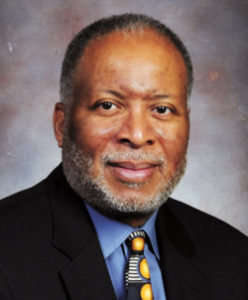
Malik G. Bankston was born and raised in Pittsburgh, PA. Mr. Bankston has worked in the non-profit health and human services sector for more than thirty years. As a longtime community and political activist, he has worked locally and nationally, to organize efforts addressing a wide range of social, economic, cultural, and social issues. In 1998, Mr. Bankston was named as Executive Director of The Kingsley Association. Since then, Mr. Bankston had guided Kingsley to a fourfold increase in the size of its operations.
He has served as a consultant to agencies and programs involved with substance abuse treatment and prevention, delinquency prevention, education and adolescent development. He has extensive experience in the development and operation of family and adolescent services; and community based programs. While remaining active in local community development efforts, Mr. Bankston has provided training and consultation to several state and federal government entities on issues related to substance abuse, delinquency and organizational development. Mr. Bankston has always maintained an interest and active role in the development of programs that promote the personal growth and development of African American youth. In addition to providing staff and board development training for youth serving agencies, Mr. Bankston serves on several boards including Rights and Responsibilities, Pittsburgh Economic Industrialization Development, Inc., East Liberty Development, Inc., the Larimer Consensus Group, and Pittsburgh Urban Initiatives, LLC.
bankston@kingsleyassociation.org
 Mallory Bateman received her Bachelors degree in Urban Planning from the University of Utah and an MSc in Social Policy and Planning from the London School of Economics. Mallory comes from a background in transportation, with a focus on research and public involvement. She is passionate about creating change through thoughtful and innovative research and decision making. Outside of policy, Mallory is on a mission to fill up all the pages in her passport and has a countdown clock for University of Utah football season each year.
Mallory Bateman received her Bachelors degree in Urban Planning from the University of Utah and an MSc in Social Policy and Planning from the London School of Economics. Mallory comes from a background in transportation, with a focus on research and public involvement. She is passionate about creating change through thoughtful and innovative research and decision making. Outside of policy, Mallory is on a mission to fill up all the pages in her passport and has a countdown clock for University of Utah football season each year.
 Will Bernstein is a Senior Policy Analyst at the Allegheny Conference on Community Development. Will’s work at the Conference includes analysis and research on issues impacting the economic competitiveness of the Pittsburgh region, with an emphasis on state and local pension reform, public transportation, and housing and development in struggling communities. Will also manages the Conference’s Strengthening Communities Partnership, which brings financial and technical resources to select community development organizations in southwestern Pennsylvania. Will has a Master of Science in Public Policy and Management from Carnegie Mellon University’s Heinz College, and a Bachelor of Arts in History and Philosophy from Brown University.
Will Bernstein is a Senior Policy Analyst at the Allegheny Conference on Community Development. Will’s work at the Conference includes analysis and research on issues impacting the economic competitiveness of the Pittsburgh region, with an emphasis on state and local pension reform, public transportation, and housing and development in struggling communities. Will also manages the Conference’s Strengthening Communities Partnership, which brings financial and technical resources to select community development organizations in southwestern Pennsylvania. Will has a Master of Science in Public Policy and Management from Carnegie Mellon University’s Heinz College, and a Bachelor of Arts in History and Philosophy from Brown University.
wberstein@alleghenyconference.org
 Catherine DeLoughry communicates about the agenda of the Allegheny Conference on Community Development and its Affiliates, a leading U.S. regional economic development and civic engagement organization, to decision-making audiences throughout and beyond the Pittsburgh region.
Catherine DeLoughry communicates about the agenda of the Allegheny Conference on Community Development and its Affiliates, a leading U.S. regional economic development and civic engagement organization, to decision-making audiences throughout and beyond the Pittsburgh region.
Her work includes strategic communications and media relations, public policy outreach and advocacy, leadership engagement, fundraising, organizational development, benchmarking and strategic planning. She serves as the staff lead for the Conference’s Agenda setting process. For the 2015-2017Agenda,she engaged over 1,000 regional decision makers and emerging leaders to develop the Conference’s action plan to connect people to opportunity – through economic & community development, infrastructure and workforce.
Ms. DeLoughry has also spearheaded several special assignments, serving as Executive Director of the Pittsburgh G-20 Partnership, the public-private host committee created to welcome the world to Pittsburgh for the G-20 Leaders Summit in September 2009 and to tell the story of Pittsburgh’s transformation. She provided staff leadership for the statewide Issues PA project during the 2002 and 2006 Pennsylvania gubernatorial elections and for “Pittsburgh 250,” a three-year celebration of the Pittsburgh region’s 250th anniversary.
Ms. DeLoughry served as Executive Director of the Allegheny 2000 Citizens Committee, a countywide, non-partisan organization that worked for the successful passage of the Allegheny County Home Rule Charter referendum in the May 1998 primary election. Following the passage of the referendum, she worked closely with Allegheny County government staff and officials and a wide variety of community leaders and partners to develop the new government structure and operations. In 2005, she was engaged in a subsequent successful government reform effort to streamline the county’s row offices via referendum.
Before joining the Conference in 1994, Ms. DeLoughry held positions in non-profit management and healthcare administration. A native of New York City, Ms. DeLoughry holds a master’s degree in public administration from the University of Pittsburgh Graduate School of Public and International Affairs and a bachelor’s degree in anthropology from The University of Chicago. She serves on the National Academy of Sciences Science & Engineering Ambassadors Advisory Board and is a Leadership Pittsburgh graduate. She and her husband and son live in Regent Square.
 Nate Cunningham and Claire Hosteny are partners in East End Development Partners, LP (EEDP). EEDP is focused on developing complex real estate projects in Pittsburgh’s urban core.
Nate Cunningham and Claire Hosteny are partners in East End Development Partners, LP (EEDP). EEDP is focused on developing complex real estate projects in Pittsburgh’s urban core.
Founded in January 2014, EEDP’s first major project is the renovation of a 110 year old vacant and deteriorating YMCA facility into an Ace Hotel in the East Liberty neighborhood of Pittsburgh. Ace Pittsburgh will open in Fall 2015 and has $25 million in total development costs; utilizes New Markets Tax Credits, Historic Tax Credits, private equity, and several innovative debt vehicles.
Prior to founding EEDP with Claire, Nate was the head of ELDI Real Estate, a for profit development company owned by East Liberty Development Inc. (ELDI). While working for ELDI Real Estate and ELDI, Nate oversaw development projects totaling more than $45M and covering a broad range of product types in a geographically focused area. Projects included low income housing tax credit development, historic tax credit mixed-use development, multi-family acquisition and reposition, single family new construction, substantial rehab of single family residences (50+ homes), residential condominiums, and vacant lot development. Prior to returning to ELDI where he began he worked early in his career, Nate worked for a for-profit development company in Charlottesville, VA, as a development manager, where he oversaw and was a team member for a diverse set of commercial and residential projects, including a $25M land development, totaling more than $100M of development.
Nate began his career in real estate and construction as an Americorps volunteer with Habitat for Humanity in Philadelphia and Pittsburgh. He graduated from Penn State with a BA in Philosophy. Nate is married and has two young children.
Prior to founding EEDP with Nate, Claire was General Counsel for ELDI Real Estate. Claire was responsible for overseeing legal agreements and transaction documentation for a broad range of commercial and residential real estate projects. Additionally, she helped to implement some of ELDI Real Estate’s more creative approaches to urban redevelopment utilizing partnerships with a broad range of developers.
While at the Urban Redevelopment Authority (URA) of Pittsburgh, Claire managed the redevelopment process for URA owned real estate, select Board of Education real estate and high profile City of Pittsburgh properties. She was responsible for evaluating potential land acquisitions and sales of land with respect to economic development impacts, legal challenges, market conditions, financial feasibility, planning issues, neighborhood concerns, and design issues. Claire has a backsground in economic development and has worked on projects ranging is size from micro economic development in South Central Los Angeles to consulting for the World Economic Forum.
Claire obtained her JD from the University of Pittsburgh. At Pitt, she was the associate editor for the Pittsburgh Tax Review and completed the Community and Economic Development Clinic. She obtained her Masters of Science from the London School of Economics and Political Science with honors. She has a BA from Georgetown University where she was a Baker Scholar. Claire completed a year of volunteer service through the Americorps VISTA program. Claire is married and has two young sons.
nate.cunningham@eastenddevelopment.com
claire.hosteny@eastenddevelopment.com
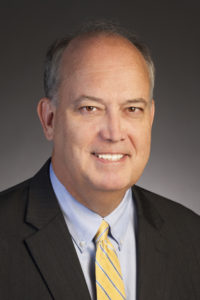 Bill Flanagan serves as Chief Corporate Relations Officer for the Allegheny Conference on Community Development and its affiliated regional development organizations: The Pennsylvania Economy League of Greater Pittsburgh LLC, the Pittsburgh Regional Alliance and the Greater Pittsburgh Chamber of Commerce. In this role, Bill guides the development of regional and organizational messaging strategy and supervises Investor Relations activities, including membership development and programming, as well as fundraising.
Bill Flanagan serves as Chief Corporate Relations Officer for the Allegheny Conference on Community Development and its affiliated regional development organizations: The Pennsylvania Economy League of Greater Pittsburgh LLC, the Pittsburgh Regional Alliance and the Greater Pittsburgh Chamber of Commerce. In this role, Bill guides the development of regional and organizational messaging strategy and supervises Investor Relations activities, including membership development and programming, as well as fundraising.
An experienced broadcast journalist, Bill has told the story of the transformation of the economy in Pittsburgh, Pennsylvania for more than 30-years. He serves as host and producer of “Our Region’s Business,” a weekly business public affairs program on WPXI-TV in Pittsburgh, PA, the Pittsburgh Cable News Channel (PCNC), and YouTube.
As President of The Pittsburgh G-20 Partnership in 2009, Bill helped to organize the public/private partnership of organizations from across southwestern Pennsylvania that came together to welcome the world for the Pittsburgh Summit. As Executive Director of Pittsburgh 250, the celebration of the 250th anniversary of the naming of Pittsburgh in 2008, Bill supervised a multi-year, 14-county initiative.
Bill came to work in southwestern Pennsylvania in 1982 as a reporter for KDKA-TV. He served as the station’s Money Editor for 13 years and has written about personal finance for The Pittsburgh Post-Gazette and KDKA-AM.
Bill serves on the boards of Leadership Pittsburgh, Inc. and Rivers of Steel National Heritage Area, and on the Pittsburgh advisory board of the Science and Engineering Ambassadors, a program of the National Academy of Sciences and the National Academy of Engineering.
A graduate of Northwestern University (B.S. Speech), Bill holds a Master’s Degree in Journalism from the University of Missouri-Columbia. He is a native of Dover, Delaware.
Bill and his wife, Ann Devlin Flanagan, have two children, Mara and Will
bflanagan@alleghenyconference.org
 As Managing Director of Strategy & Operations at the Economy League of Greater Philadelphia, Nick Frontino develops and directs economic development analysis and planning projects focused on many of the Philadelphia area’s most challenging issues. He has nearly ten years of experience working with government, nonprofit, and private sector clients to advance projects across a range of issues including economic impact analysis, transportation finance and investment strategy, innovation-based economic development, communications strategy, and corporate strategic planning.
As Managing Director of Strategy & Operations at the Economy League of Greater Philadelphia, Nick Frontino develops and directs economic development analysis and planning projects focused on many of the Philadelphia area’s most challenging issues. He has nearly ten years of experience working with government, nonprofit, and private sector clients to advance projects across a range of issues including economic impact analysis, transportation finance and investment strategy, innovation-based economic development, communications strategy, and corporate strategic planning.
Recently, Nick led the Economy League’s high-profile work with SEPTA to quantify the benefits of the transit agency’s proposed extension of the Norristown High Speed Line to King of Prussia. He has appeared on public radio and has spoken on regional development and related topics in front of a variety of leadership audiences.
Nick joined the Economy League as a project manager in 2010. He previously held positions at the Philadelphia Industrial Development Corporation, the Sustainable Business Network of Greater Philadelphia, and the Italian American Community Services Agency in San Francisco. He holds Master of City Planning from the University of Pennsylvania and an undergraduate degree from the University of Chicago. He is a member of the Urban Land Institute-Philadelphia’s Policy and Land Use Council.
Nick lives with his wife in South Philadelphia. If you run into him outside of the office, odds are you’ll find him elbow-deep in DIY home renovations, fermenting something, or playing squash.
 Kent Gardner is Chief Economist for the Center for Governmental Research in Rochester, NY. His public policy expertise ranges from public finance and public administration to health care and education reform. Dr. Gardner joined CGR in 1991 as Director of Economic Analysis and served as President from 2005 to 2012. While President he led the expansion of CGR’s geographic footprint to areas of the Midwest; directed the development of special data and analysis tools (Govistics, informANALYTICS) and expanded CGR’s offerings to web-based community profiles. Supporting solutions for critical community challenges, the profiles provide credible and accessible access to key decision metrics (see ACTRochester and East Tennessee’s ET Index).
Kent Gardner is Chief Economist for the Center for Governmental Research in Rochester, NY. His public policy expertise ranges from public finance and public administration to health care and education reform. Dr. Gardner joined CGR in 1991 as Director of Economic Analysis and served as President from 2005 to 2012. While President he led the expansion of CGR’s geographic footprint to areas of the Midwest; directed the development of special data and analysis tools (Govistics, informANALYTICS) and expanded CGR’s offerings to web-based community profiles. Supporting solutions for critical community challenges, the profiles provide credible and accessible access to key decision metrics (see ACTRochester and East Tennessee’s ET Index).
A significant share of Dr. Gardner’s work involves connecting policy action and program expenditures to their social, fiscal and economic impacts. He leads all of CGR’s economic impact assessments and is a major contributor to our many program evaluations. As both an economist and a statistician, he brings a nuanced understanding of causation and a deep appreciation both for the potential value and the limitations of established datasets and survey data.
Dr. Gardner holds B.A., M.A. and Ph.D. degrees from the University of Wisconsin at Madison. Dr. Gardner also teaches Health Policy at the Rochester Institute of Technology. He is a regular columnist for the Rochester (NY) Business Journal. His columns are posted at policy-wonk.org.
(585) 466-4273
kgardner@cgr.org
 Rob Henken is the President of the Public Policy Forum. Since joining the Forum in January 2008, Henken has authored or co-authored four reports that won national awards from the Governmental Research Association. He was named one of Milwaukee’s 100 most influential leaders in The Milwaukee Business Journal’s annual “Power Book” in 2012 and one of Milwaukee’s “Game Changers” by M Magazine in 2013.
Rob Henken is the President of the Public Policy Forum. Since joining the Forum in January 2008, Henken has authored or co-authored four reports that won national awards from the Governmental Research Association. He was named one of Milwaukee’s 100 most influential leaders in The Milwaukee Business Journal’s annual “Power Book” in 2012 and one of Milwaukee’s “Game Changers” by M Magazine in 2013.
Prior to becoming PPF President, Henken worked in Milwaukee County Government for nearly 10 years, serving as Director of Research for the County Board, Director of Health and Human Services, and Director of Administrative Services. Henken also has directed two non-profit organizations in Milwaukee – the Alliance for Future Transit and the Milwaukee Jobs Initiative. Prior to moving to Milwaukee in 1994, he worked for seven years on Capitol Hill as a senior aide to two congressmen and as staff director for a House of Representatives foreign affairs subcommittee.
In addition to leading the Forum, Henken is an adjunct associate professor at the University of Wisconsin-Milwaukee’s School of Architecture and Urban Planning, where he teaches on transportation policy. He also is President of the Governmental Research Association, which includes nearly 30 research organizations from 19 states.
Henken has a Bachelor’s Degree in History from Brown University and a Master’s in Journalism and Public Affairs from American University. Born and raised in Newton, Massachusetts, he lives in Bayside with his wife, Barrie, and cockapoo, Barkley. The couple has two grown sons, Danny and Ben.

Brian Jensen is a senior vice president at the Allegheny Conference on Community Development and the Executive Director of the Pennsylvania Economy League of Greater Pittsburgh, LLC (PELGP), an affiliate of the Allegheny Conference, where he manages the Conference’s Economy and Community strategy and civic policy work.
Municipal government improvement has been the theme of Dr. Jensen’s career with the Pennsylvania Economy League since 1987. Dr. Jensen has the ongoing responsibility to develop and manage a strategy to advance municipal pension and binding arbitration reform. He leads the Allegheny Conference’s efforts to regionalize municipal sewer collection systems and promote integrated watershed management in Allegheny County, to foster coordinated approaches to community development and to address preK-12 public education funding, accountability and governance. Dr. Jensen also led PELGP’s participation in the efforts that successfully consolidated earned income tax collection and streamlined municipal mergers and consolidations. Additionally, he was instrumental in reengineering Allegheny County government.
Dr. Jensen serves on the board of the Local Government Academy, is a trustee of the Governmental Research Association and serves on the Penn State Center Advisory Council. Dr. Jensen has a Ph.D. in History & Policy from Carnegie Mellon University and served as a Peace Corps volunteer in Liberia.
bjensen@alleghenyconference.org
Ted Melnyk has been involved with East Liberty Development Inc. for over ten years, but has been on staff for three as Director of Family, Community & Social Equity. For much of his tenure at ELDI Ted has been piloting a national anti-poverty model called Circles which matches low-income people with middle and upper income people for at least two years. Prior to EDLI, Ted was on staff at Eastminster Church in East Liberty, working with youth, as well as founding a housing program. Ted has a Master’s Degree from the University of Pittsburgh, as well as Pittsburgh Theological Seminary. Ted, his wife, four children, and his beloved dog Rogi live in Highland Park.
 Pope “Mac” McCorkle has served as an issues consultant to political candidates, state governments, and various organizations for the last two decades. Since starting McCorkle Policy Consulting in 1994, he has worked for state and federal candidates in North Carolina as well as 28 other states.
Pope “Mac” McCorkle has served as an issues consultant to political candidates, state governments, and various organizations for the last two decades. Since starting McCorkle Policy Consulting in 1994, he has worked for state and federal candidates in North Carolina as well as 28 other states.
McCorkle has published a number of articles on politics and public policy in academic journals and such magazines as Columbia Journalism Review, Commonweal, and Society. He graduated from Princeton magna cum laude in history (1977) and Duke Law School with honors (1984), clerked on United States Court of Appeals for the Sixth Circuit (1984-85), and practiced law for a number of years in Raleigh with the firm founded by former Duke President Terry Sanford.
 Dean Michael Mead is Research Manager at the GASB, overseeing the GASB’s research agenda, managing external research, interfacing with the academic community, and coordinating constituent outreach. Dean is an adjunct member of the accounting faculty at Rutgers Business School, where he teaches governmental accounting & auditing, governmental financial analysis, and advanced topics in governmental accounting. He is a member of the Association for Budgeting and Financial Management, American Accounting Association, National Federation of Municipal Analysts, Municipal Analysts Group of New York, American Association of Public Opinion Research, Governmental Research Association, and other organizations. He serves on the editorial board of Public Budgeting & Finance. Dean is the author of the GASB’s User Guide Series. He has published articles in journals such as Public Budgeting & Finance, Journal of Policy Analysis and Management, State and Local Government Review, Journal of Public Health Management and Practice, and Journal of Government Financial Management. He has recently contributed chapters to The Handbook of Municipal Bonds, Handbook of Local Government Fiscal Health, Management Policies in Local Government Finance, and Public Financial Management. In 2015, Dean received the Award for Excellence from the National Federation of Municipal Analysts for his efforts to educate municipal analysts about governmental accounting through his publications and presentations.
Dean Michael Mead is Research Manager at the GASB, overseeing the GASB’s research agenda, managing external research, interfacing with the academic community, and coordinating constituent outreach. Dean is an adjunct member of the accounting faculty at Rutgers Business School, where he teaches governmental accounting & auditing, governmental financial analysis, and advanced topics in governmental accounting. He is a member of the Association for Budgeting and Financial Management, American Accounting Association, National Federation of Municipal Analysts, Municipal Analysts Group of New York, American Association of Public Opinion Research, Governmental Research Association, and other organizations. He serves on the editorial board of Public Budgeting & Finance. Dean is the author of the GASB’s User Guide Series. He has published articles in journals such as Public Budgeting & Finance, Journal of Policy Analysis and Management, State and Local Government Review, Journal of Public Health Management and Practice, and Journal of Government Financial Management. He has recently contributed chapters to The Handbook of Municipal Bonds, Handbook of Local Government Fiscal Health, Management Policies in Local Government Finance, and Public Financial Management. In 2015, Dean received the Award for Excellence from the National Federation of Municipal Analysts for his efforts to educate municipal analysts about governmental accounting through his publications and presentations.
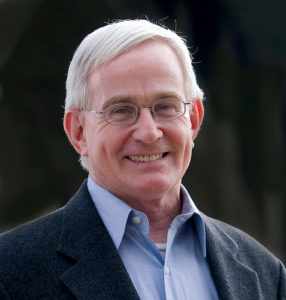 Tom Murphy, ULI Canizaro/Klingbeil Families Chair for Urban Development, has been a senior resident fellow at the Urban Land Institute since 2006.
Tom Murphy, ULI Canizaro/Klingbeil Families Chair for Urban Development, has been a senior resident fellow at the Urban Land Institute since 2006.
A former mayor of Pittsburgh, his extensive experience in urban revitalization—what drives investment, what ensures long-lasting commitment—has been a key addition to the senior resident fellows’ areas of expertise. Murphy also serves on the Advisory Board of ULI’s Rose Center for Public Leadership in Land Use.
In 2011 he wrote Building on Innovation, a ULI report discussing the economic impact universities and hospitals have on local economies and providing detailed strategies to shape a successful 21st-century city based on a private/public/university partnership.
Since joining ULI, Murphy has served on many Advisory Services panels, including panels in Moscow and Hong Kong, as well as Baltimore, Chicago, and other U.S. cities. Additionally, Murphy served as ULI’s Gulf Coast liaison, helping coordinate with the leadership of New Orleans and the public the rebuilding recommendations made by a ULI Advisory Services panel held shortly after Hurricane Katrina. He also worked on rebuilding strategies with leaders in the Gulf Coast areas of Mississippi and Alabama in the wake of Katrina.
Murphy has represented ULI in a number of cities, from Baton Rouge to Baltimore, helping them shape a revitalization strategy. He is a frequent speaker at ULI gatherings and other events.
Before joining ULI, Murphy served three terms as mayor of Pittsburgh, from January 1994 through December 2005. During that time, he initiated a public/private partnership strategy that leveraged more than $4.5 billion in economic development in the city. Murphy led efforts to secure and oversee $1 billion in funding for the development of two professional sports facilities, and a new convention center that is the largest certified green building in the United States. He developed strategic partnerships to transform more than 1,000 acres of blighted, abandoned industrial properties into new commercial, residential, retail, and public uses, and he oversaw the development of more than 25 miles of new riverfront trails and parks.
From 1979 through 1993, Murphy served eight terms in the Pennsylvania House of Representatives. He focused his legislative activities on changing western Pennsylvania’s economy from industrial to entrepreneurial, and wrote legislation requiring state pension funds to invest in venture capital firms. In addition, he wrote legislation to create the Ben Franklin Technology Partnership, now over 25 years old, which is dedicated to advancing Pennsylvania’s focus on early-stage startup businesses and the commercialization of cutting-edge technologies.
Murphy served in the Peace Corps in Paraguay from 1970 to 1972. He is a 1993 graduate of the New Mayors Program offered by Harvard University’s Kennedy School. He holds a Master of Science degree in urban studies from Hunter College and a Bachelor of Science degree in biology and chemistry from John Carroll University.
He is an honorary member of the American Society of Landscape Architects; a board member of Harmony Development Inc. of New Orleans; president of the board of the Wild Waterways Conservancy of Pennsylvania; and a board member of Mountain Lake Inc. of Virginia
Over the past 14 years Kendall Pelling has led the planning and implementation of a comprehensive residential development strategy for the distressed urban neighborhood of East Liberty. This process has included the acquisition of all vacant abandoned properties and interventions in the foreclosure markets and substandard rental housing market. Large Scale development of affordable and market rate housing is now underway. A third of all the rental housing in the neighborhood is protected as long term affordable housing. The real estate based crime strategy has reduced crime by 49%, eliminating major urban crime hotspots and transforming public safety. These interventions have caused home values to rise dramatically. Low income homeowners now have equity in their homes and real generational wealth.
Kendall is an expert in public and nonprofit systems to recycle vacant and abandoned properties, and has served on numerous taskforces at the local and state levels.
Kendall has degrees in Public Policy and Management from the University of Southern California and Carnegie Mellon University and is a graduate of the Coro Fellows program in Public Affairs. He is an elder at Valley View Presbyterian church and lives in the urban neighborhood of Garfield.
kendall.pelling@eastliberty.org
 Joe Peterangelo is a senior researcher with the Public Policy Forum. Peterangelo’s research focuses on economic development, workforce development, and transportation.
Joe Peterangelo is a senior researcher with the Public Policy Forum. Peterangelo’s research focuses on economic development, workforce development, and transportation.
Before joining the Forum in 2011, Peterangelo worked as a planning assistant for the City of Milwaukee’s Department of City Development and as a research assistant with the Metro Chicago Information Center. Prior to moving to Milwaukee in 2008, he was a program coordinator for United Way of Dane County in Madison, Wisconsin.
Peterangelo holds a Master of Urban Planning degree from the University of Wisconsin, Milwaukee and a bachelor’s degree in sustainable development from the Evergreen State College in Olympia, Washington. He is a member of the American Planning Association.
jpeterangelo@publicpolicyforum.org
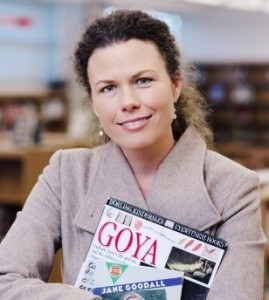 Mebane Rash is the CEO and editor-in-chief of EducationNC. Mebane attended Irwin Elementary, First Ward Elementary, McClintock Middle, and East Mecklenburg High School in Charlotte, N.C. She graduated from the University of Virginia in 1990 and the UNC School of Law in 1993. At the UNC School of Law, she was a member of the North Carolina Law Review. She has been a member of the North Carolina State Bar since 1993, and she is admitted to practice in both the state and federal court systems.
Mebane Rash is the CEO and editor-in-chief of EducationNC. Mebane attended Irwin Elementary, First Ward Elementary, McClintock Middle, and East Mecklenburg High School in Charlotte, N.C. She graduated from the University of Virginia in 1990 and the UNC School of Law in 1993. At the UNC School of Law, she was a member of the North Carolina Law Review. She has been a member of the North Carolina State Bar since 1993, and she is admitted to practice in both the state and federal court systems.
After law school, she worked for Carolina Legal Assistance, a mental disability law project, before joining the nonpartisan N.C. Center for Public Policy Research as the policy analyst from 1994-98 and the director of law and policy from 2006-14. From 1995-99, she was an adjunct professor at the UNC School of Law. She was an attorney for the ACLU-NC from 1998-99.
She was selected in 1997 to be a William C. Friday Fellow for Human Relations, a fellowship for emerging leaders across North Carolina, and she currently serves on the inaugural Z. Smith Reynolds Leadership Council. She is a member of the Board of Trustees of the national Governmental Research Association. In 2013, she was one of 60 women from 25 countries invited to spend a week at Harvard’s Kennedy School of Government to study Women and Power: Leadership in the New World. She has won national awards from the Governmental Research Association for most distinguished research, outstanding policy achievement, and most effective education of the public.
Mebane is a native of North Carolina, currently living in Raleigh and Deep Gap. She says, “We live in a purple state now – 2.7 million of the registered voters are blue Democrats, 2 million are red Republicans, and 1.7 million are unaffiliated. I could see this happening as I grew up because on my block lived Harvey Gantt, and next door to him lived Mel Watt, and two doors down from them lived Sue Myrick with her son Dan Forest. Every day of my life has been spent playing and then working across party lines. Living a bipartisan life, I have learned the importance of finding common ground and that credible research and information can change minds.”
 Peter Reichard is Director of Research at BGR, where he has worked since 2002. Before that, he worked for several years as a newspaper editor and a teacher. He holds a BA from Loyola University New Orleans and an MA from Fordham University in New York (American History). He is a native of New Orleans.
Peter Reichard is Director of Research at BGR, where he has worked since 2002. Before that, he worked for several years as a newspaper editor and a teacher. He holds a BA from Loyola University New Orleans and an MA from Fordham University in New York (American History). He is a native of New Orleans.
 Phyllis Resnick is lead economist for the Colorado Futures Center at Colorado State University. In addition, she is an independent consultant with a practice that focuses on economic forecasting, revenue and fiscal sustainability studies for state and local governments, and economic impact studies. Her current and past clients include the Governor’s Office of State Planning and Budgeting, the region’s metropolitan planning organizations, many of Colorado’s municipal governments, and the State of Hawaii.
Phyllis Resnick is lead economist for the Colorado Futures Center at Colorado State University. In addition, she is an independent consultant with a practice that focuses on economic forecasting, revenue and fiscal sustainability studies for state and local governments, and economic impact studies. Her current and past clients include the Governor’s Office of State Planning and Budgeting, the region’s metropolitan planning organizations, many of Colorado’s municipal governments, and the State of Hawaii.
Resnick is the former lead economist for the Center for Colorado’s Economic Future and for the Colorado Economic Futures Panel, both at the University of Denver. For much of 2012, she traveled throughout Colorado presenting the findings from the Center’s award winning fiscal sustainability study and advised the state of Hawaii on issues of fiscal sustainability. In 2007-08 she served as research staff to DU’s Strategic Issues Panel exploring changes to the state’s constitution. She has led and authored a number of studies looking at state and local tax policy and burdens within Colorado and has spoken nationally on the impact of Colorado’s TABOR Amendment and the role of the initiative process in formulating fiscal policy in Colorado.
Resnick completed her master’s and doctoral degrees at the CU-Boulder and CU-Denver respectively, and her research explored the effect of tax and expenditure limitations on tax reform efforts in the states.
 At the Research Council, Kriss Sjoblom has authored reports on numerous issues, including the state’s economy, its tax system, transportation, and housing. Dr. Sjoblom has served on the Washington State Governor’s Council of Economic Advisors since 1995, under Governors Mike Lowry, Gary Locke, Chris Gregoire and Jay Inslee. In 2011, he served on the Commission on State Debt.
At the Research Council, Kriss Sjoblom has authored reports on numerous issues, including the state’s economy, its tax system, transportation, and housing. Dr. Sjoblom has served on the Washington State Governor’s Council of Economic Advisors since 1995, under Governors Mike Lowry, Gary Locke, Chris Gregoire and Jay Inslee. In 2011, he served on the Commission on State Debt.
A Seattle native, Sjoblom earned an A.B. degree from the University of California, Berkeley and a Ph.D., in economics, from Yale University. Before joining the Research Council, he taught at the University of Pennsylvania and at Haverford College. He is currently a fellow of the University of Washington Economics Department’s Economic Policy Research Center.
 Benjamin Stuart joined the Research Bureau in July 2013 as a Research Associate. He is responsible for researching and writing reports on a variety of municipal topics. In addition, he is responsible for monitoring City Council and School Committee activity. Ben holds a B.S. in Political Science from Northeastern University.
Benjamin Stuart joined the Research Bureau in July 2013 as a Research Associate. He is responsible for researching and writing reports on a variety of municipal topics. In addition, he is responsible for monitoring City Council and School Committee activity. Ben holds a B.S. in Political Science from Northeastern University.
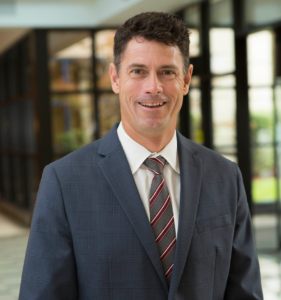 Craig Thiel joined CRC in 2006 and currently serves as a Senior Research Associate assigned to education matters. Before coming to CRC, Craig worked for the Senate Fiscal Agency for six years and for the House Fiscal Agency for three years. Previous to his time with the Michigan Legislature, Craig held positions with the Michigan Department of State, Office of Policy and Planning from 1995 to 1997 and the United States Environmental Protection Agency in Chicago from 1991 to 1993.
Craig Thiel joined CRC in 2006 and currently serves as a Senior Research Associate assigned to education matters. Before coming to CRC, Craig worked for the Senate Fiscal Agency for six years and for the House Fiscal Agency for three years. Previous to his time with the Michigan Legislature, Craig held positions with the Michigan Department of State, Office of Policy and Planning from 1995 to 1997 and the United States Environmental Protection Agency in Chicago from 1991 to 1993.
Craig holds a B.A. in Economics and Political Science from Kalamazoo College and a Masters in Public Administration from Wayne State University. He holds positions on various professional, nonprofit, and local government boards/associations. He works out of CRC’s Lansing office.
 Joe Yeado is a senior researcher with the Public Policy Forum. Yeado’s research focuses on academic achievement and overall performance across southeast Wisconsin’s entire education spectrum, including K-12 school districts, choice and charter schools, early childhood education facilities, and postsecondary institutions.
Joe Yeado is a senior researcher with the Public Policy Forum. Yeado’s research focuses on academic achievement and overall performance across southeast Wisconsin’s entire education spectrum, including K-12 school districts, choice and charter schools, early childhood education facilities, and postsecondary institutions.
Before joining the Forum in September 2014, Yeado was a higher education research and policy analyst at The Education Trust in Washington, D.C. where he advised federal, state and institutional policymakers on college access, affordability and completion. Additionally, Yeado managed the data collection and analysis for the Access to Success Initiative, a consortium of 19 state university systems dedicated to closing achievement gaps for underrepresented students. Prior to working in D.C., Yeado was an admissions counselor at Marquette University and coordinated advocacy efforts to maintain state-wide financial aid programs in Wisconsin.
Yeado holds a master’s degree in Applied Economics and a bachelor’s degree in Economics, both from Marquette University.